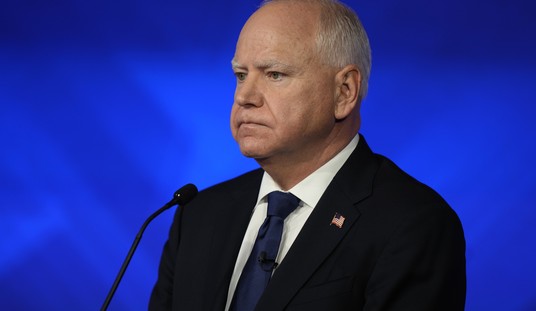As a former staffer for President Reagan, I know the complex difficulty of reforming the tax code. In 1986, Reagan and his team delivered the last major tax reform legislation. To achieve success today, President Trump and his allies will need the same wit, charm, and patience Reagan demonstrated. Thankfully, House Ways and Means Committee Chairman Kevin Brady (R-TX) is showing some of the smarts it takes to make tax reform a real possibility.
On Thursday, faced with the hot potato issue of carried interest, Brady proposed a middle ground. His amendment, accepted by the Ways and Means Committee, retained the 20-percent rate, while appeasing the White House by merely increasing the minimum asset hold time. Now, the hope is the Senate, led by conservatives like John Thune (R-SD), will adopt the measure.
Brady’s astute political maneuvering on this issue was sorely needed, because without it, this necessary investment incentive would have likely been scrapped completely. Donald Trump and Hillary Clinton didn’t agree on much last year. But one thing they did both agree on was that so called “carried interest” involved a special interest loophole that should be closed.
With his characteristic understatement, Trump said “private equity funds” and “hedge funds” just involved “paper pushers” who were “getting away with murder” due to their tax loopholes. Copying the rhetoric of Barack Obama, he promised to increase their taxes to make sure they were paying their fair share.
Hillary criticized what she called “quarterly capitalism” focused on quick short term profits sacrificing needed investment for long term gains. But they were both wrong. Here is what is involved in “carried interest.”
A group of investors pools their funds to buy a run-down, multi-family, apartment complex in a poor neighborhood. The property needs renovation to become habitable. The investors fix the place up, and reopen it for rental, as low-income housing.
Recommended
Profits from operation of the restored property are taxed as regular income at regular income tax rates. But when the investors sell the restored property, any profit on the sale is taxed as a capital gain at the lower capital gains tax rates.
There is a fundamental reason for those preferential capital gains tax rates. Capital gains taxes inherently involve double taxation of the property.
The capital value of the property is equal to the present discounted value of the future operational income stream. If rents go up in the market, that increases operational income, which will already be taxed when it is earned as regular income at regular income tax rates. But that rent increase also increases the capital value of the property. If that capital gain is taxed as well, the rent increase will be effectively taxed twice.
That double taxation can effectively involve taxation of mere inflation, which doesn’t involve any real income to pay the tax. The double taxation and possible taxation of mere inflation grossly deflates any incentive to invest at all, which grossly impairs growth. Capital gains tax increases consequently so often result in declining revenue, due to the declining growth.
For the opposite reasons, lower capital gains taxes tend to produce bursts in investment, jobs, wage increases and economic growth, which means increased revenue.
Private equity funds and hedge funds involve very similar operations to that investor pool fixing up and restoring distressed real estate properties. Except that the equity funds and hedge funds involve buying and fixing up distressed or failing businesses.
The investors pool their funds to buy such businesses, invest capital in improving their operation, performance and profitability, and then ultimately resell the restored businesses back in the marketplace. Any income made from operation of the businesses is taxed as regular income at regular income tax rates.
But when the business is sold, any profit is a capital gain, taxed at the lower capital gains rates. That is how the IRS has taxed private equity funds and hedge funds since the income tax started 100 years ago in 1913.
That is good tax policy followed for good reason. The capital value of the businesses equals the present discounted value of their future operational income stream, which will be taxed when earned at regular income tax rates.
Any increase in that operational income stream will also be taxed at regular income tax rates. But increased operational income also increases the capital value of the business. Capital gains taxes consequently involve double taxation of that increased operational income.
Lower capital gains rates increase investment, not only by equity funds and hedge funds, but also by venture funds providing capital for new startups and expansion of small businesses. That increased investment increases jobs, wages, economic growth, and consequently revenues.
Taxing the capital gain from sale of the restored businesses at higher regular income tax rates would have the opposite effects. It would decrease capital investment, reduce jobs and wages, and slow economic growth, ultimately causing revenues to decline.
Arguably, any taxation of the increased capital value of the businesses, which inherently involves double taxation of operational income, is unfair. So surely at least taxing the capital value at the lower capital gains rates is not a loophole. It is a compromise to restore at least some tax equity, and increase jobs, wages, economic growth and revenue.
























Join the conversation as a VIP Member